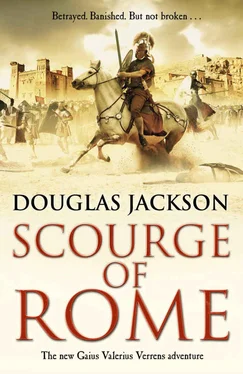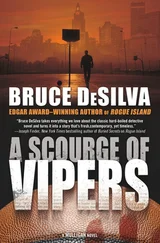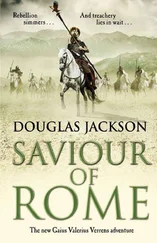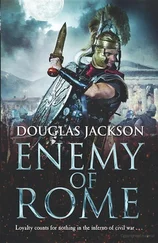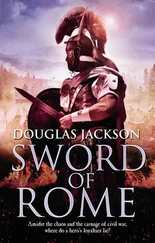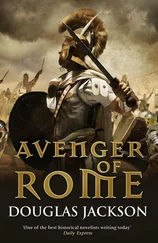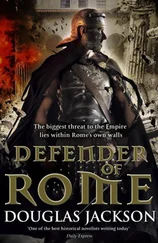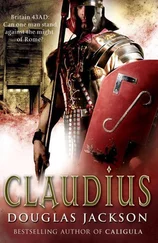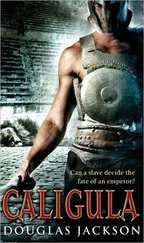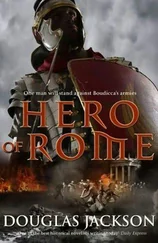Douglas Jackson - Scourge of Rome
Здесь есть возможность читать онлайн «Douglas Jackson - Scourge of Rome» весь текст электронной книги совершенно бесплатно (целиком полную версию без сокращений). В некоторых случаях можно слушать аудио, скачать через торрент в формате fb2 и присутствует краткое содержание. Год выпуска: 2015, ISBN: 2015, Издательство: Transworld Digital, Жанр: Исторические приключения, на английском языке. Описание произведения, (предисловие) а так же отзывы посетителей доступны на портале библиотеки ЛибКат.
- Название:Scourge of Rome
- Автор:
- Издательство:Transworld Digital
- Жанр:
- Год:2015
- ISBN:9780593070598
- Рейтинг книги:5 / 5. Голосов: 1
-
Избранное:Добавить в избранное
- Отзывы:
-
Ваша оценка:
- 100
- 1
- 2
- 3
- 4
- 5
Scourge of Rome: краткое содержание, описание и аннотация
Предлагаем к чтению аннотацию, описание, краткое содержание или предисловие (зависит от того, что написал сам автор книги «Scourge of Rome»). Если вы не нашли необходимую информацию о книге — напишите в комментариях, мы постараемся отыскать её.
Scourge of Rome — читать онлайн бесплатно полную книгу (весь текст) целиком
Ниже представлен текст книги, разбитый по страницам. Система сохранения места последней прочитанной страницы, позволяет с удобством читать онлайн бесплатно книгу «Scourge of Rome», без необходимости каждый раз заново искать на чём Вы остановились. Поставьте закладку, и сможете в любой момент перейти на страницу, на которой закончили чтение.
Интервал:
Закладка:
The man had shaken his head in mock sorrow. ‘That would be because the traders wouldn’t let him within a hundred paces of their daughters.’ He grinned. ‘He may not look it, but our Ariston is a terrible one for the ladies.’
The Syrian had accepted the commission readily enough, but his protests started when Valerius insisted on setting out before daylight. Ariston boasted of being from a long line of fearless warriors whom no bandit would dare attack, but it seemed his fearlessness didn’t extend to the dark. ‘Only a fool or a fugitive creeps about after the sun has gone down,’ he muttered peevishly. ‘We should wait.’
But the dawn risked exposing Valerius to the eyes of his enemies and after further negotiation he persuaded Ariston into motion. They left the city by the Beroea Gate – two men and three horses, the pack horse heavily laden, helped on their way by a modest bribe to the gate guard. Ariston led Valerius along the eastern road, with the Orontes always to their left. It was his plan to follow the river to the next major stopping place, which meant a day’s march east before turning south. With the gods’ will it would take them another eight days to reach Emesa.
Flat slabs of local stone provided the road with a good surface and even in the dark they made good time. Dawn saw them skirting the foothills of the mountain range that hung like a wall over Antioch. The morning mist cleared quickly and they broke their fast in the shelter of an olive grove beneath a sky of pristine, eggshell blue while their horses drank from the foaming waters of the river. On the opposite bank, the valley was carpeted with fields already worked by slaves ploughing and planting the fertile dark earth. It was a tranquil pastoral scene, evidence of a land settled and at peace, and Valerius said so as they prepared to mount up.
His words drew a high-pitched laugh from his companion. ‘Ayah, peace provided at a price by your legions for the Greeks who own this land and these slaves and those vineyards on the hills yonder. All paid for by the taxes of people who have never seen a legionary, nor asked for or needed his protection.’
Valerius favoured him with an indulgent smile. It was the argument of the barbarian from one end of the Empire to the other. They were simple people who couldn’t understand that, just because the benefits provided by their taxes weren’t visible, it didn’t mean they didn’t exist. ‘But you have fine roads that can be travelled in all weathers,’ he pointed out as he pulled himself into the saddle. ‘Bridges that never wash away and wells that never dry up.’
Ariston shrugged dismissively. ‘Does it matter if a man reaches his destination in a day, or a week? The destination will still be there when he arrives. Or he gets his feet wet crossing a stream that will, in any case, cleanse them or cool them on a hot day? A well is very fine, but only a fool does not know how to find water.’ He looked towards the distant mountains. ‘This river was once named for Typhon, the dragon who was its creator. It is said the gods sought him out with their lightning bolts and in his agony he tore up the earth and created this valley, before fleeing underground where he unleashed the waters. Now it is the Orontes. Who knows what it will be next?’
‘Whether I reach my destination in a week or a month your mindless chatter isn’t taking us any closer.’ Valerius kicked his horse into motion, but Ariston’s words still rang in his head. What the Syrian said was true. Nothing was permanent but the earth and the mountains and the sea. Everything else had its time, even empires.
Ariston turned moody and sullen after the rebuke and they barely exchanged another two words before they halted in the late afternoon. The Syrian wanted to use the daylight to continue a few miles to a mansio , one of the government lodging houses that dotted the highway. Instead, Valerius insisted they sleep under the stars away from the road. Muttering complaints beneath his breath the guide tethered the horses and prepared the campsite.
For the hundredth time since leaving Rome, Valerius found himself wishing that Serpentius, the freed gladiator who had become his friend and bodyguard, had been able to travel with him. The Spaniard had suffered a dangerous head wound trying to save the life of Vitellius’s son Lucius during the Flavian sack of Rome. If he still lived he would be halfway to his home province by now. Serpentius had acted as Valerius’s shield when none was available, covering his right side in many a fight, and the Roman felt naked and vulnerable without his friend. A familiar itch reminded him that by now anyone who wanted to know would have discovered he’d left Antioch and might well be on the road behind them.
‘We’ll do without a fire this first night.’ The order drew a stare from his companion, but for once Ariston didn’t complain. He set out a cloth and laid it with rolled vine leaves stuffed with a moist, tasty combination of cereal and spiced ground lamb. Valerius pulled a flask from his pack and poured wine into two leather travel cups. The Syrian nodded his thanks and supped appreciatively as they ate.
‘You are a well-travelled man, Ariston,’ Valerius said. ‘Tell me what you know of the situation in Judaea.’
Ariston didn’t raise his eyes from his food. ‘The Jews are fools to fight you Romans, but they are like a lion trapped in a cave with the hunter’s spear at his throat. Ask them why and they will tell you that when a free man is forced to mortgage his lands and call another man master while he watches the flesh fall from his starving sons’ bones, there comes a time when he has no other choice but to fight.’
‘A fine speech,’ Valerius commented. ‘But I do not recognize this Rome you paint. Yes, Rome taxes, but it also builds, and it encourages those living under its rule to create further wealth that can be taxed in its turn. Surely to create wealth there must be peace, which benefits all?’
‘Just so.’ Restless green eyes stared out from beneath the heavy brow. ‘But what happens when the wealth is created by the sweat and blood of the poorest and none is returned? For sixty years they watched their gold being shipped to Rome or used by their priests – priests appointed by Roman masters, mark you – to decorate the Great Temple of Jerusalem and glorify the Judaean god at enormous cost to his long-suffering people. Then your procurator marched his men to the temple and demanded seventeen talents of gold – the weight of ten men – in compensation for some imagined slight. In such circumstances all that is required is a spark.’ The Syrian shrugged. ‘They are a superstitious people and when a light in the sky appeared in the shape of a sword, the spark was provided. When they saw the anger of the common folk, the priests suspended sacrifices in honour of the Emperor.’
Listening to the other man’s words, Valerius realized he hadn’t been entirely accurate when he’d said he didn’t recognize Ariston’s Rome. A face swam into view, narrow and sharp-edged, with a long nose and a drooping petulant lip. Catus Decianus, procurator of Britannia, had also impoverished his subjects on behalf of Nero and provided the spark for a bloody insurrection when he’d scourged Boudicca, queen of the Iceni.
‘What happened next?’ he asked, though he could imagine it easily enough.
‘Leaders appeared, and the country people rose up and invested the towns where they believed the riches of the land were stored. Roman garrisons were slaughtered along with any Judaean who supported them. So Rome had to act. A competent general would have smashed them in weeks, crucified a few of their commanders and sent the rest back to their fields.’
Valerius felt a flush of anger at the memory of his army’s shameful record in Judaea. The Roman generals Nero sent had been far from competent. Cestius Gallus rushed his legions from Syria to suppress the rebellion, but after initial successes he’d been forced to retreat. Worse, the Twelfth Fulminata had lost its eagle. Rome had not only been defeated, it had been humiliated. Brute force had failed, but Rome did not negotiate with rebels in a backwater like Judaea. The answer was to find a more competent brute.
Читать дальшеИнтервал:
Закладка:
Похожие книги на «Scourge of Rome»
Представляем Вашему вниманию похожие книги на «Scourge of Rome» списком для выбора. Мы отобрали схожую по названию и смыслу литературу в надежде предоставить читателям больше вариантов отыскать новые, интересные, ещё непрочитанные произведения.
Обсуждение, отзывы о книге «Scourge of Rome» и просто собственные мнения читателей. Оставьте ваши комментарии, напишите, что Вы думаете о произведении, его смысле или главных героях. Укажите что конкретно понравилось, а что нет, и почему Вы так считаете.
